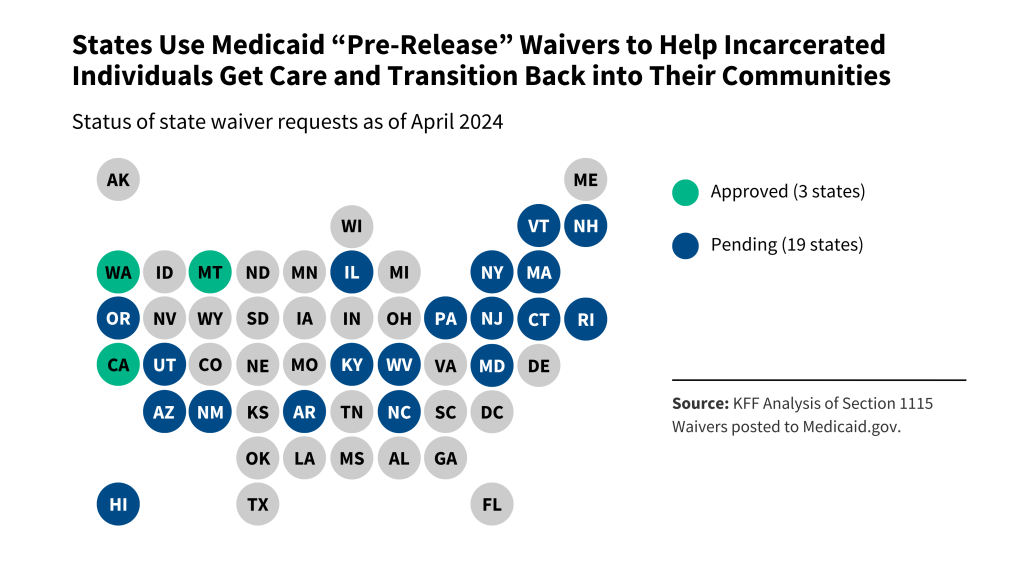[ad_1]
Compared to the general population, individuals who are incarcerated have higher rates of mental illness, substance use disorder, and chronic disease. However, the federal “inmate exclusion” policy prohibits Medicaid coverage for people who are incarcerated (except for limited inpatient hospital services). When people leave incarceration, they are at greater risk of overdose death and suicide, as well as hospitalization and emergency department use.
In a new explainer, KFF examines a new waiver opportunity that allows states to request a partial waiver of the inmate exclusion policy from the Centers for Medicare and Medicaid Services (CMS) to help smooth individuals’ transitions back into the community with “reentry services.” These services aim to improve health care transitions, increase continuity of health coverage, reduce disruptions in care, improve health outcomes, and reduce recidivism rates.
KFF explains the current landscape of “pre-release” waivers across states. The explainer also provides background on the demographic characteristics and health needs of people who are incarcerated.
Among the key takeaways:
- About 1.2 million people were incarcerated in federal and state prisons as of the end of 2022, and 660,000 people were held in local jails as of mid-year 2022. Millions more interact with the correctional system each year.
- Individuals who are incarcerated have higher rates of chronic diseases such as hypertension, tuberculosis, hepatitis, and HIV/AIDS than the general population and also have significant behavioral health needs. An estimated 65% of people incarcerated in prisons nationally have an active substance use disorder.
- Three states (California, Montana, and Washington) have approval to provide pre-release services to certain incarcerated, Medicaid-eligible individuals as of April of this year. California estimates that approximately 200,000 people each year will be eligible to receive pre-release services, and Washington estimates 4,000 people per year will receive them. Nineteen additional states have waiver requests pending with CMS.

Pre-release services vary by state but include (at a minimum) case management (to assess health and social needs and to assist individuals in obtaining services both pre- and post-release), medication-assisted treatment and counseling for substance use disorders, and a 30-day supply of prescription medications upon release.
[ad_2]
Source link

